Biden’s ‘dictator’ jab at Xi follows Blinken’s fence-mending China trip
By Ivan Kesic
China’s foreign ministry in a statement on Wednesday accused US President Joe Biden of “political provocation” after Biden called his Chinese counterpart Xi Jinping a “dictator”.
The ministry spokesman Mao Ning said the US president’s remarks “seriously violated China’s political dignity and amounted to public political provocation”, inflaming the situation again.
"It is a blatant political provocation. China expresses strong dissatisfaction and opposition," Mao said at a daily briefing. "The U.S. remarks are extremely absurd and irresponsible.”
Biden made the remarks about Xi off-camera at a fundraiser in California on Tuesday, saying Xi was embarrassed over the recent spy balloon controversy.
“The reason why Xi Jinping got very upset in terms of when I show that balloon down with two box cars full of spy equipment in it was he didn’t know it was there,” he said.
"That's a great embarrassment for dictators. When they didn't know what happened.”
Importantly, the remarks came a day after US Secretary of State Antony Blinken wrapped up his two-day high-stakes visit to China in order to mend fences and de-escalate tensions with Beijing.
During the visit, Blinken met with China's top diplomat Wang Yi, Foreign Minister Qin Gang, and President Xi Jinping. The visit failed to produce any significant breakthrough but the two warring economies agreed to keep the lines of communication open.
The talks with senior Chinese politicians, according to Blinken, were aimed to strengthen high-level channels of communication, to make clear positions and objectives in disagreements, and to explore areas of common interests.
Blinken's trip marked the first visit by an American top diplomat to China since 2018, as well as the first during the presidency of Joe Biden, with relations between the two sides nose-diving.
US-China key bilateral issues
Biden’s acerbic remarks about Xi point to deep-rooted animosity between the world’s two largest economies and arch-rivals, as the range of disputes between them are only exacerbating.
Washington’s anti-China unilateral moves in recent years include provocative transits in the Taiwan Strait, a de-facto tariff war, sanctions on Chinese companies and individuals, pressures on other countries to ban Chinese advanced technology, and an aggressive strategic approach against China.
Most importantly, US officials have been regularly treating the Chinese Taipei (Taiwan) as a territory independent of China's mainland, in violation of the internationally-recognized "One China" principle.
The US is expanding arms exports to Taiwan, increasing warship navigation in the Taiwan Strait, and attempting to expand a NATO-like military alliance in the Asia-Pacific region.
The establishment of AUKUS, an alliance that provides Australia with advanced nuclear-powered submarines, as well as NATO's plan to open a liaison office in Japan, are examples of such policies.
The US recently reached deals on troop deployments in southern Japan and the northern Philippines, both strategically close to Taiwan. Many experts believe that these moves could spiral out of control and lead to an open China-US war.
Washington is also believed to be actively interfering in China's internal affairs and leading a massive smear campaign in mass media, mainly aimed at fueling Sinophobia among domestic audiences.
Claims of alleged anti-Muslim genocidal persecution in eastern China, promoted by the US and some of its Western allies, have not been accepted by any Muslim-majority country.
Chinese officials’ remarks
In his meeting with Blinken on Monday, Chinese President Xi urged the United States to respect China, reject major-country competition and honor the positive statements and consensus made at his meeting with US President Joe Biden last year, as reported by China’s state media.
Xi noted that "the world needs a generally stable China-US relationship", and "whether the two countries can find the right way to get along bears on the future and destiny of humanity".
Commenting on US major-country competition, Xi stressed that such competition "does not represent the trend of the times, still less can it solve the US' own problems or the challenges facing the world".
"China respects US interests and does not seek to challenge or displace the US. In the same vein, the US needs to respect China and must not hurt China's legitimate rights and interests," he asserted.
"Neither side should try to shape the other side by its own will, still less deprive the other side of its legitimate right to development.”
On Sunday, both China's top diplomats Wang and Qin reiterated that Taiwan is the core of the country's core interests, over which China has no room for compromise or concessions.
Qin described it as the most important issue, as well as the most prominent risk in China-US relations which, according to his words, have hit the lowest level since the establishment of diplomatic relations.
Wang pointed out that the US's wrong perception of China is the root cause of the decline in their relations, urging Washington to stop hyping the fatalistic "China threat" theory, suppressing China's technological development, interfering in its internal affairs, and lifting illegal unilateral sanctions.
Room for improvement?
Blinken's statements did not point to any progress on the main issue of Taiwan. Although he voiced opposition to Taiwan's independence, he explicitly said that the US position has not changed.
According to experts, it means the US is sticking to its policy of not officially recognizing independence but maintaining robust political and military ties with Taiwan, which are on an upward trajectory.
There was also no indication that the US plans to back away from its strategic encirclement of China, with Blinken going so far as to call China's activities in the Taiwan Strait, as well as in the South and East China Seas, as "provocative."
The issues of dangerous US military build-up in China's backyard and ongoing anti-China sanctions remained largely unaddressed in the statements of American officials and the Western press, with the latter focusing more on the balloon incident.
Blinken's own announcement before the trip that he did not expect a major breakthrough signaled that the US had no intention of departing from current policies against China, and is more interested in strengthening high-level channels of communication.
China refused to restore military-to-military communications, leaving contacts between the country’s top military officials frozen and potential incidents far more prone to veering into conflict.
Biden’s “provocative” remarks after Blinken’s visit, observers believe, means the room for improvement in ties or de-escalation of tensions between the two sides continues to grow narrower.
VIDEO | UK court frees remaining jailed members of Palestine Action
VIDEO | Former prince Andrew arrested by British police
VIDEO | Backlash mounts as Pakistan joins US-led Gaza ‘Board of Peace’
Saudi-Greece fiber optic project to pass through Syria instead of occupied territories: Report
Israel steps up bloodshed in Lebanon
US lawmakers move towards vote on limiting Trump’s Iran strike authority
VIDEO | Hebrew media talk ‘Board of Peace,’ ceasefire, anti-Iran rhetoric, tensions surrounding Lebanon
VIDEO | Rising tensions in West Asia


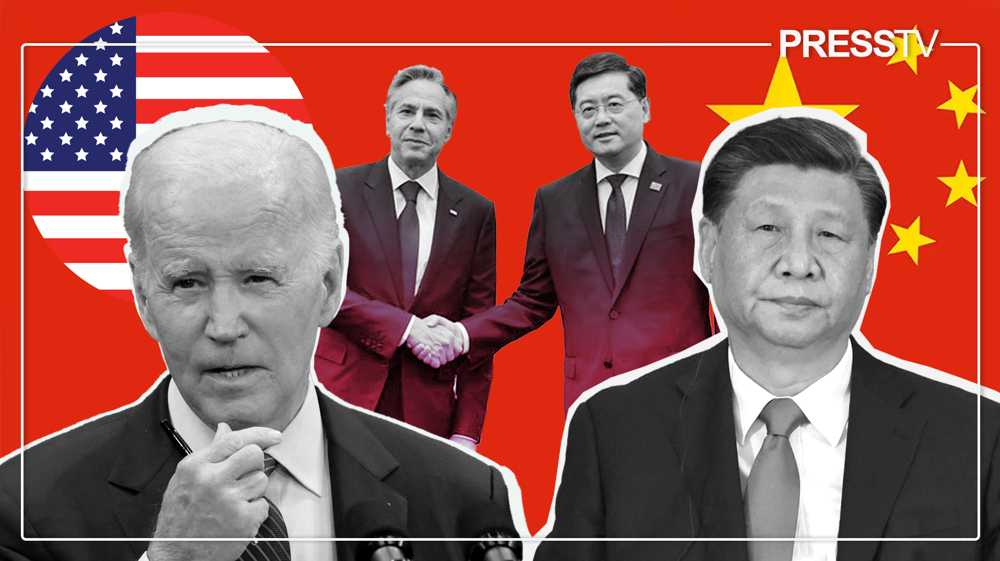
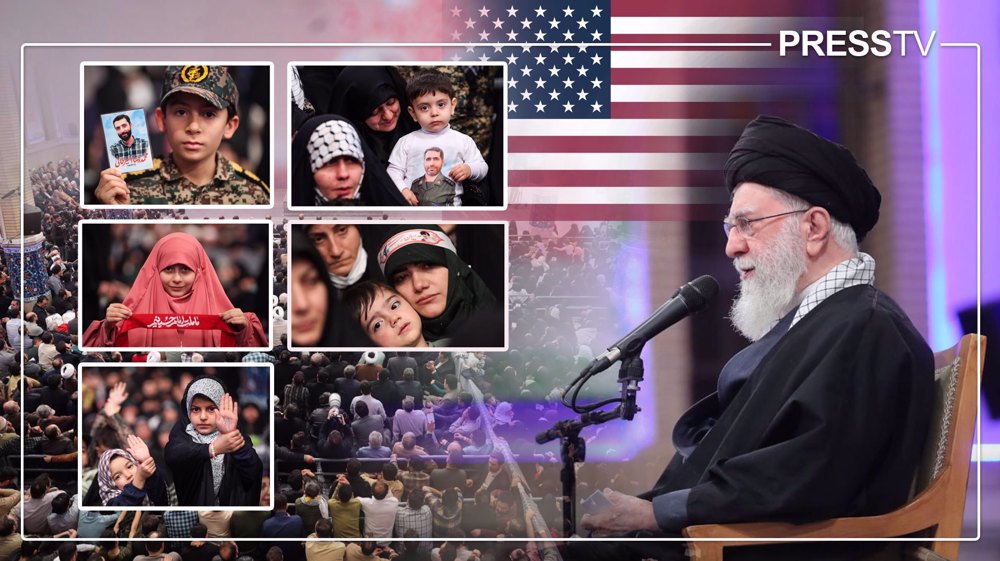

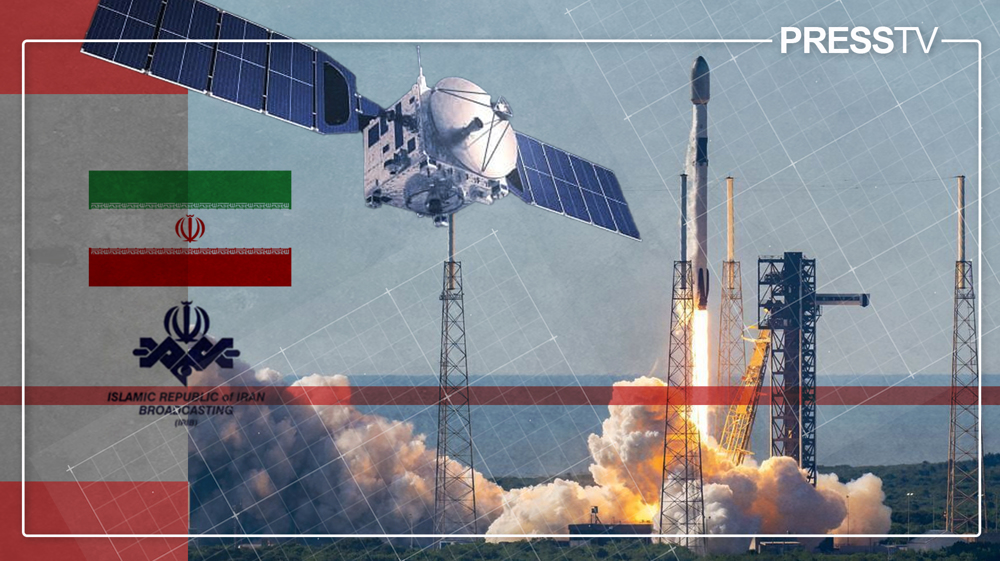



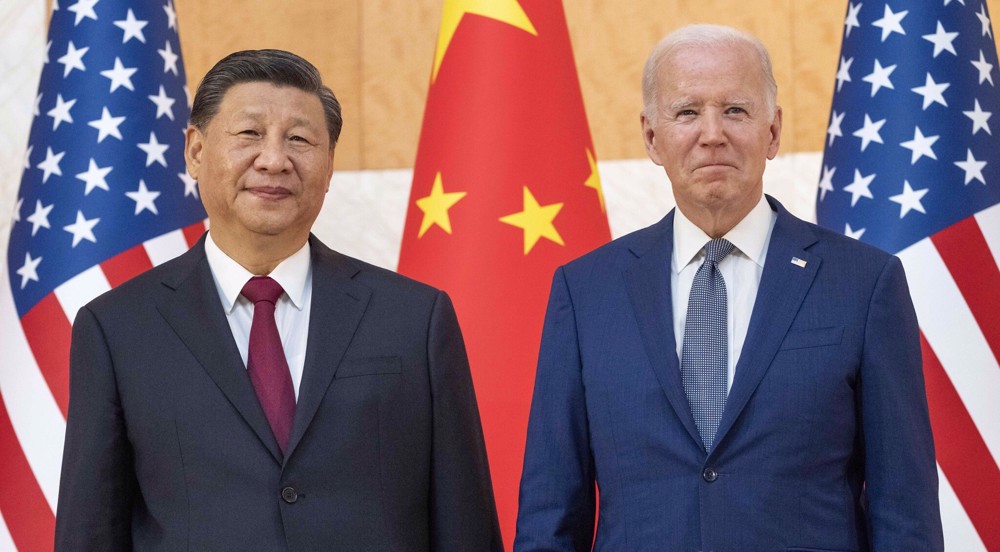
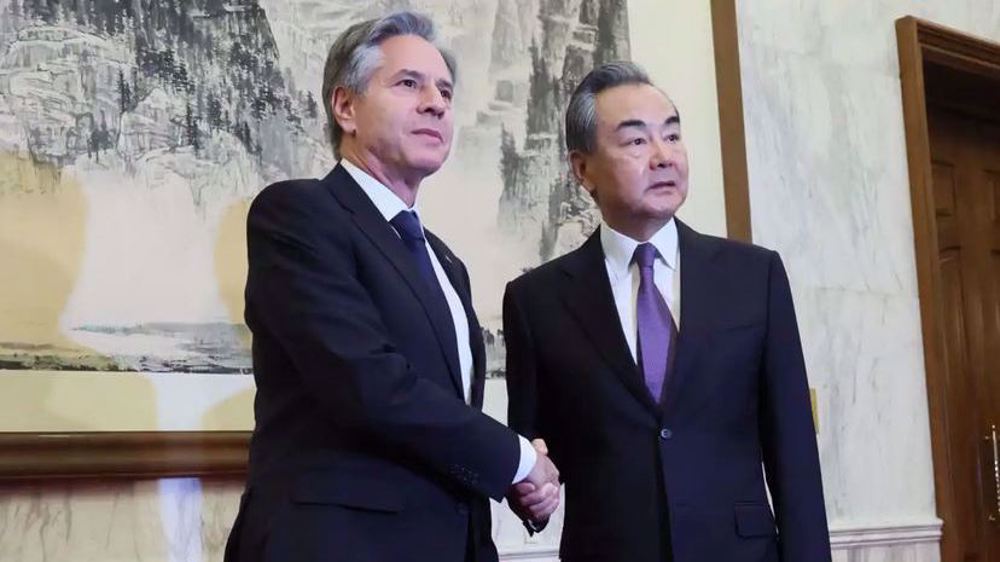
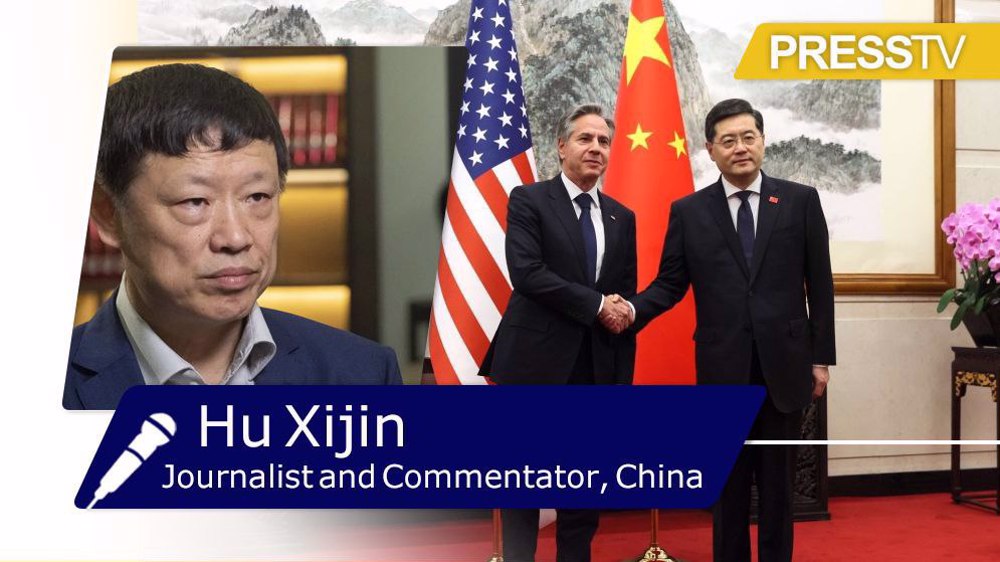
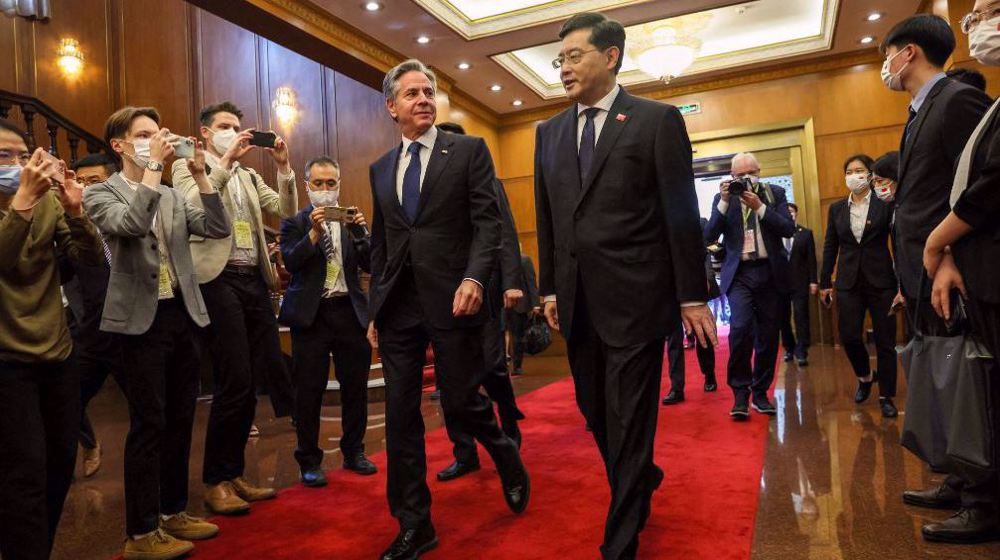
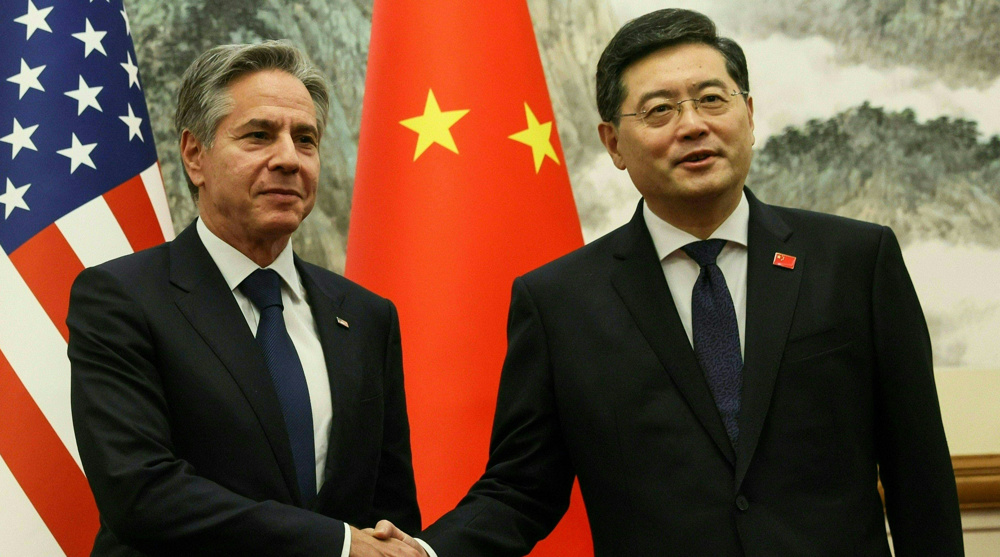

 This makes it easy to access the Press TV website
This makes it easy to access the Press TV website